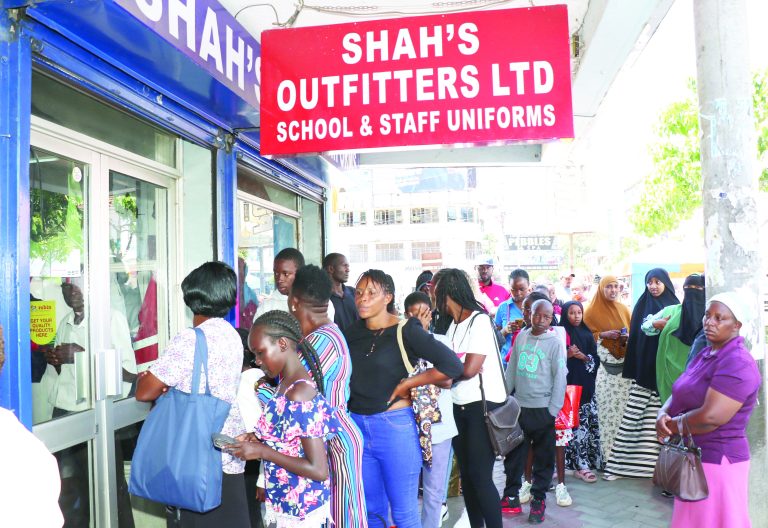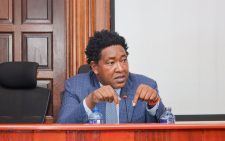Groping in dark: Schools scramble to find room for Grade 9 learners

Though 2025 was touted as a defining year in the implementation of the Competency-Based Curriculum, education sector players are groping in the dark about what the future holds for students.
The pioneer Grade Nine cohort is at the centre of a crisis as school heads decry lack of enough classrooms in public schools even though the government has assured parents that it has put in place the necessary measures to ensure students do not miss classes.
Sensing that it would not deliver enough classrooms for Grade Nine by the time schools reopened, officials said students who would not be accommodated in the new learning blocks under construction would be moved to makeshift classes.
“It is a herculean task to build 16,000 classrooms in over so many – I think the 23,000 – primary schools across the country,” said Government Spokesman Isaac Mwaura last year.
“But we are trying our level best. There may be some makeshift arrangements before they are completed, but we are trying to race against time to ensure they will be ready.”
But even as classes resume today after the long December holiday, not only will Grade Nines most likely face space challenges, but they will also lack textbooks.
A spot check by People Daily revealed that most bookshops had not stocked Grade Nine books, and nor did parents know which books to buy for their children. Textbooks for grades One to Five were also in short supply.
Besides, the government announced that the Teachers Service Commission was supposed to have recruited over 70, 000 teachers by January 2025 while still retraining Grade Nine teachers to handle the required subjects under CBC.
“In preparation for the transition to Grade Nine, the Ministry of Education has conducted pilot assessments to help teachers familiarise themselves with the new assessment categories,” Mwaura said.
“This ensures that teachers are ready to effectively assess students under the CBC framework in the upcoming academic year.”
‘Smooth transition’
Also putting on a brave face was the chairman of the Kenya Primary Schools Head Teachers Association, Johnson Nzioka, who insisted that all was well in the preparations.
“Everything is set and we expect a smooth transition. Although some [classrooms] have not been completed in some schools and not all textbooks are available, the government is doing [what it can] to ensure learners are not affected,” Nzioka told People Daily.
However, it has now emerged that, even with such preparations, Junior Secondary School teachers with university degrees feel that they have been demoted to serve at the same level as their counterparts in primary schools, a majority of whom are diploma holders.
Education experts accused the government of being dishonest about its preparedness for a smooth transition for Grade Nines, saying officials had set the students up for a chaotic start.
To avert a possible crisis from lack of enough classrooms for Grade Nines, the government should have delayed reporting time for them as it sorted out issue, said Emmanuel Manyasa of Usawa Agenda.
Students, he said, should have been admitted to secondary schools near their former primary schools.
“More than 60 percent of Grade Nines have a secondary school within walking distance. It should have been possible to just transition them to the nearest secondary school because we have empty classrooms [there],” Manyasa said.
He dismissed as baseless claims that the students were too young to be admitted to secondary schools, emphasising that they are 14 years old, the same age at which they would have joined secondary school under the defunct 8-4-4 system.
“Where does this story of ‘if they go to secondary, they have to board’ come from? They should go to the nearest secondary school and be day scholars. After all, most of our secondary schools are day anyway,” he said.
He also faulted the Ministry of Education, saying Junior Secondary School (JSS) students were being taught by teachers who were not trained to teach science subjects.
“These children are being used as guinea pigs in this curriculum. In public schools, there has not been much learning, because most of those schools have art teachers only,” Manyasa said.
“Yet the government wants 60 percent of those children to transition to STEM [Science, Technology, Engineering, and Mathematics]. What miracle makes that happen without science teachers?”
Student interests
The interests of students, he said, were not taken into account. He claimed that all that primary school heads wanted when it was decided that JSS should be domiciled at their institutions was to get more resources under their control.
“Nothing has been done to make those primary schools capable of handling junior school,” he lamented.
“People are fighting for them in primary schools just for money. Primary school heads know that they can’t be handling junior school but they just want the money.”
Manyasa went on: “Those primary schools have no labs to be able to teach the students science which they ought to be learning. No one is thinking about the interests of the children. I don’t know what the government is thinking about but I know that teachers’ groups are thinking about money.”
As of yesterday, many schools in Machakos county had not completed building Grade Nine classrooms and there were not enough teachers, claimed Machakos Deputy Governor Francis Mwangangi.














